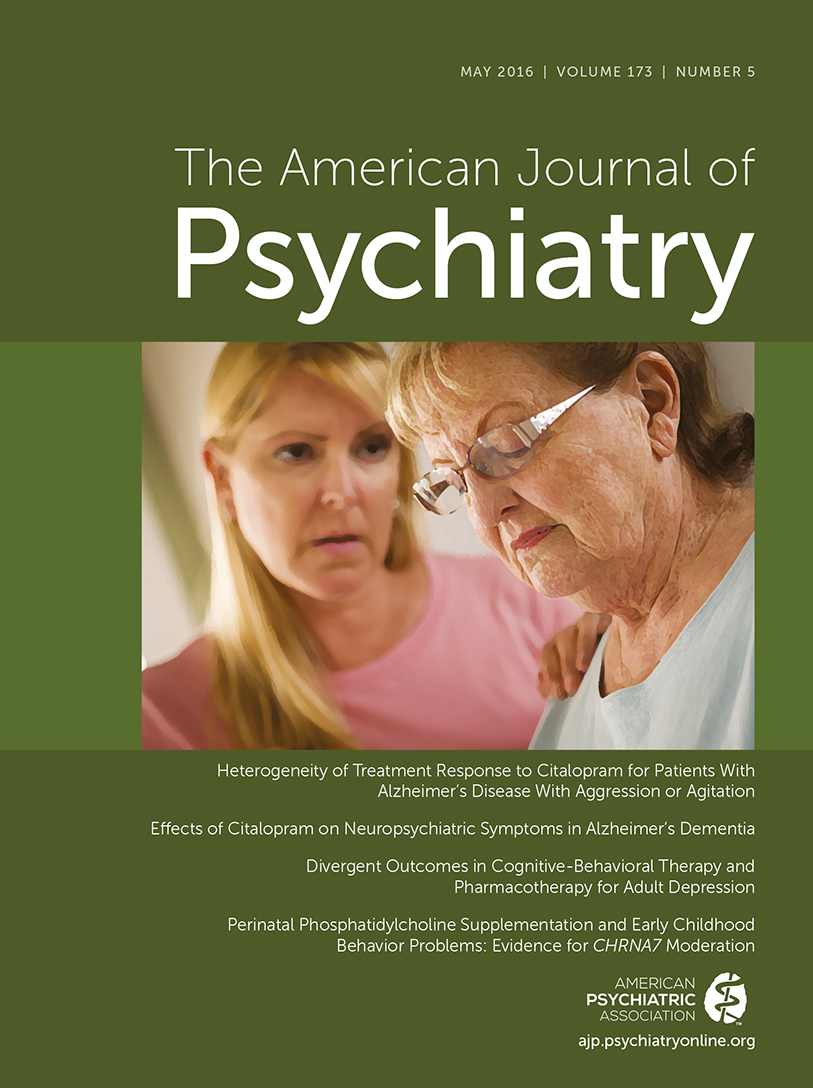Perinatal Phosphatidylcholine Supplementation and Early Childhood Behavior Problems: Evidence for CHRNA7 Moderation
Abstract
Objective:
α7-Nicotinic receptors are involved in the final maturation of GABA inhibitory synapses before birth. Choline at levels found in the amniotic fluid is an agonist at α7-nicotinic receptors. The authors conducted a double-blind placebo-controlled trial to assess whether high-dose oral phosphatidylcholine supplementation during pregnancy to increase maternal amniotic fluid choline levels would enhance fetal development of cerebral inhibition and, as a result, decrease childhood behavior problems associated with later mental illness.
Method:
The authors previously reported that newborns in the phosphatidylcholine treatment group have increased suppression of the cerebral evoked response to repeated auditory stimuli. In this follow-up, they report parental assessments of the children’s behavior at 40 months of age, using the Child Behavior Checklist.
Results:
At 40 months, parent ratings of children in the phosphatidylcholine group (N=23) indicated fewer attention problems and less social withdrawal compared with the placebo group (N=26). The improvement is comparable in magnitude to similar deficits at this age associated with later schizophrenia. The children’s behavior is moderated by CHRNA7 variants associated with later mental illness and is related to their enhanced cerebral inhibition as newborns.
Conclusions:
CHRNA7, the α7-nicotinic acetylcholine receptor gene, has been associated with schizophrenia, autism, and attention deficit hyperactivity disorder. Maternal phosphatidylcholine treatment may, by increasing activation of the α7-nicotinic acetylcholine receptor, alter the development of behavior problems in early childhood that can presage later mental illness.



